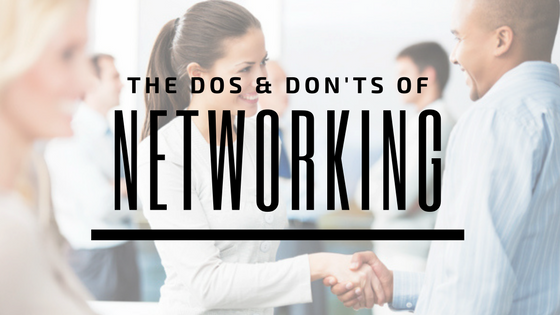We all hear about networking in today’s professional environment. We are told it is a necessary skill, not an optional one. What though is networking and how does one go about doing it successfully?
According to many experts, networking means: To build relations on the basis of trust that involves a give and take. Although seemingly simple, this definition is easier said than done. Let’s break it down….
To build relations: To build a relationship means that you are developing a pattern of interactions with another person. In order for this to be true, making a good first impression is crucial.
On the basis of trust: Trust suggests confidence in someone or something to be reliable, valid and truthful. Trust in a person also involves seeing strength in him/her.
Involves a give and take: Networking involves helping others and providing something or some service to others while also looking for something or some service from others.
So, how does one go about doing all of this? Below are my top 3 dos and don’ts for professionally networking with others.
Dos
- Make a good first impression. This includes:
- Being on-time to your meeting
- Over-dressing as opposed to under-dressing
- Being appreciative
- Listening attentively
- Develop a goal and strategy:
- Prepare ahead of time by researching the person and organization you are meeting with.
- Contemplate in advance what you hope to gain from this meeting in terms of information and additional potential contacts.
- Strategize what you can offer the person you are meeting with so that you ensure you are completing the ‘give and take’ component of networking.
- Follow-up:
- Always follow-up immediately after the meeting with a handwritten note or personal email.
- Reach out to your contacts quarterly, semi-annually or even annually with a card, phone call or email in order to ensure you maintain the relationship.
Don’ts
- Ask for a job:
- Asking for advice and asking someone to employ you are two very different things. It is always safe to ask others about their professional experiences and how they made the choices they did. It is rarely safe to ask others if they can hire you!
- Asking for a job threatens your image of strength and confidence, both of which are key components of trust.
- Stop networking because you have a job:
- Networking is most effective for growing on the job or changing jobs. When you are in crisis and trying to find a job, you are going to want a network to reach out to, so make sure to continue networking even when things are going well.
- Growing your network and maintaining your network via intermittent follow-ups to others takes time and purposeful energy. Make networking part of your professional duties so that you have relationships to call upon when you are in need of help.
- Underestimate the power of networking:
- Finding a job takes more than filling out an application on line, attending a job fair or even having an amazing resume.
- In an August 2009 survey competed by Challenger, Gray & Christmas, Inc., a global outplacement firm, human resources executives were asked to rate the effectiveness of various job-search methods on a scale of 1 (least effective) to 5 (most effective). Networking averaged a 3.98. And, about half of the executives gave networking the highest effectiveness rating of 5.
In the end, networking has now become an essential part of everyone’s professional lives. Focusing on the importance of a network; networking with awareness and purpose; and following the do’s and don’ts listed above can all have a positive impact on your professional path and help you find success, satisfaction and opportunities in your career. To learn more about networking, see Rebecca’s segment on the Charlotte Today Show.

Rebecca Glavin joins the Center for Career Development after having spent a number of years running her own practice, Glavin Counseling, as a clinician in Charlotte. She has an organizational psychology background and previously worked in leadership development consulting. Rebecca holds a BA in Psychology from Middlebury College, a Masters in Business Administration from UNC Charlotte, and a Masters in Social Work from Boston University.

